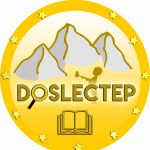💢 About the Project

In this project, it is aimed to develop an out-of-school curriculum for teacher education programs by following these steps: (i) finding out about different out of school learning environments, approaches and resources used in countries where out-of-school education has been successfully conducted over years, acquire and possess high-quality skills, (ii) acquire and possess high-quality skills, competences, knowledge and skills related to strategies, methods and techniques that can be used in out-of-school activities, iii) collaborate with partners to construct scaffolds which will help us to develop an out-of-school curriculum, iv) test and refine the curriculum first in Hacettepe University (the applicant university), (v) translate and apply the curriculum in participant countries.
The curriculum will consist of following aspects: interdisciplinary connections, STEM education, using mobile applications, virtual museums, augmented reality, assessment. The goal of this curriculum is to combine the theoretical background with applied activities by creating on-site learning environments. The theoretical knowledge will be developed via intensive collaboration with the input emerged from national and international out of school practices and examples given by the teacher trainers and project experts. In order to support theory with practice, pre-service teachers will create learning environments by choosing one of the out-of-school learning environments (e.g. planetarium, museum, zoo, etc.)
The project will start with a need analysis collecting input from different stakeholders (e.g.academicians, teachers from formal (private school [Sınav Koleji] and public schools [Etimesgut District National Education Directorate]), and informal institutions (Muğla BİLSEM). The need analysis will inform us what teacher educators, pre-service and in-service teachers expectations are from a new curriculum, what they believe that is important to focus on out-of-school learning. The project will be carried out by four program member countries (Germany, Czech Republic, Slovakia, and Turkey) and three associated partners from Turkey. As a result, a common training content will be developed with the participation of each member.
The project will produce two major outcomes: (1) Out-of-School Learning in European Countries as an e-book, (2) The out-of-school learning curriculum for teacher education programs. To measure the effectiveness of the project; the quality of the out-of-school learning environments developed by PSTs during the implementation of the newly developed curriculum will be analyzed. Additionally, we will have different assessments for PSTs to help us identify how their ideas about out-of-school learning developed. These assessment tools include interviews during the course, documentation which presents PSTs’ experiences during the course (e.g. pre-service teachers’ journals), field trip evaluation form, lesson plan evaluation rubric, and course evaluation survey. Totally seven partners will organize appropriate dissemination activities and meetings with relevant institutions. At these meetings, outputs of the project will be discussed in detail and detailed analysis will be carried out along with stakeholders in all participant countries. This last meeting of the project will host an Out-of-School Learning Conference including invited paper and poster presentations. The purpose of this conference is providing an opportunity for researchers to make connections with the practitioners and enable dissemination of the curriculum and the ebook.
